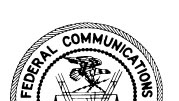The professional video industry's #1 source for news, trends and product and tech information. Sign up below.
You are now subscribed
Your newsletter sign-up was successful

The FCC last week denied the application of a Portland, OR, low-power TV (LPTV) business owner seeking an experimental license to put on-air an OFDM-based transmission system to deliver digital mobile TV and data.
The FCC informed Greg Herman, president of LPTV broadcaster WatchTV and the head of an advocacy group seeking to win for TV broadcasters the right to choose the digital modulation scheme of their own liking, of its decision in a letter dated Feb. 10. Herman had applied for the experimental license to put a five-cell, four-channel, OFDM-based DTV transmission system on-air in the Portland area.
“An experimental license is not to be used to introduce a new service that does not comply with our rules, as this request appears to contemplate,” the letter said, adding that “the applicant (Herman) hopes that thousands (of viewers) will participate … The request thus appears to be more akin to a developmental license, which may in appropriate circumstance be used to introduce a new service that does not comply with our existing rules; however, such a request should be accompanied by a petition for rulemaking seeking changes consistent with the operation under investigation.”
In a phone interview Feb. 10, Herman said he was “extremely disappointed” but remained undeterred.
“They dealt us a very strong blow on the chin,” Herman said, “but this boxer is going to get right back up and get into the ring. This is a worthy fight to determine the disposition of spectrum in United States.”
According to Herman, the FCC may be “predisposed” to reclaiming TV broadcast spectrum as a significant step in freeing up hundreds of megahertz of contiguous spectrum to meet future demand for wireless Internet broadband service, rather than changing FCC rules to allow two or more stations to share the same 6MHz channel and relying on a mechanism, namely incentive auctions, that must first be approved by Congress. A cellular OFDM-based system like the one Herman proposed in the experimental license application could, if successful and deployed nationally, help the commission achieve its wireless Internet spectrum goals far faster and with less disruption to broadcasters and consumers, he said.
In the letter, authored by William Lake, chief of the FCC Media Bureau, the agency said the information submitted with the license request was “not persuasive that the proposal is truly for a technical experiment.” The request failed to describe “except in the most general of terms” the tests that would be performed.
The professional video industry's #1 source for news, trends and product and tech information. Sign up below.
“The commission generally looks favorably on experiments designed to examine technical issues. We cannot, however, authorize an experiment that appears designed to establish a new service that is not currently permitted under commission rules,” the letter said.
Herman, however, pledged to continue to his fight for the right of broadcasters to play a role other than sacrificing spectrum in meeting the nation’s future demand for broadband wireless Internet service.
“We will make our case to Congress,” he said.
Phil Kurz is a contributing editor to TV Tech. He has written about TV and video technology for more than 30 years and served as editor of three leading industry magazines. He earned a Bachelor of Journalism and a Master’s Degree in Journalism from the University of Missouri-Columbia School of Journalism.

